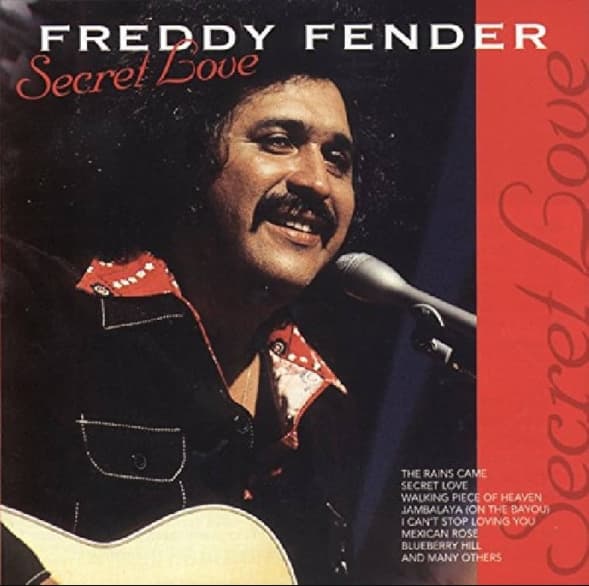
When a Love Must Stay Hidden, It Becomes a Melody All Its Own
It was the year 1975, and a generation of music lovers, having danced through the pop explosions of the ’60s and the rock anthems of the early ’70s, found themselves captivated by a new, distinctly American sound. It was a sound that blended the soulful ache of country with the romantic fire of Tejano, all delivered with a voice that had lived a lifetime of struggle, heartbreak, and triumph. This was the year that Freddy Fender, the man born Baldemar Huerta, became a household name. After his stunning crossover success with “Before the Next Teardrop Falls”, he followed up with a song that, on the surface, seemed like a simple, well-known standard. But in his hands, “Secret Love” was transformed from a peppy, Oscar-winning tune for Doris Day into a slow, waltzing ballad of profound and painful longing.
The original “Secret Love,” penned by the legendary songwriting team of Sammy Fain and Paul Francis Webster for the 1953 film Calamity Jane, was a joyous proclamation. It was the thrill of a love that was just coming into the light, a happy secret that was finally free to be shared with the world. But when Freddy Fender took a hold of it, something changed. His version, released on his 1975 album Are You Ready for Freddy?, was steeped in a different kind of truth. It wasn’t about a love that was about to be revealed; it was about a love that could not be. His gentle, yearning vocal performance, backed by a lush yet understated arrangement, gave the song a new, bittersweet meaning. The secret wasn’t a thrilling game; it was a heavy burden, a clandestine affair filled with hushed moments and stolen glances, a love that existed in the shadows. He sang the lyrics, “Once I had a secret love / That lived within the heart of me,” not as a memory of something past, but as a current, aching reality. The song became an anthem for anyone who ever had to hide their feelings, for reasons of circumstance, fear, or a love that society deemed forbidden. It was a mirror for the human condition, reflecting the universal pain of unexpressed emotions and the silent suffering that comes with a love that can’t be shouted from the rooftops.
And it resonated. In a powerful testament to the emotional depth of his interpretation, Freddy Fender‘s rendition of “Secret Love” soared up the charts, becoming the third of his four number one hits on the Billboard Country & Western chart. It wasn’t just a country hit, however. Much like its predecessor, it crossed over to the pop charts, reaching a respectable number 20 on the Billboard Hot 100. For an older audience who remembered the cheerful Doris Day version, Fender’s slow, country-tinged ballad was a revelation. It offered a new lens through which to view the classic lyrics, proving that a great song could evolve and find new life in the hands of a true artist. Fender’s signature style, a fusion of Tex-Mex, country, and pop, gave the song a unique texture—the sorrow of the steel guitar mingling with the romantic sway of the rhythm section, all anchored by his rich, expressive vocals that seemed to hold a world of quiet pain and profound love.
For those who came of age in the 1970s, “Secret Love” wasn’t just a song; it was a feeling. It was the soundtrack to late-night drives, the soft background for a slow dance in a dimly lit room, or a moment of private reflection. It was a simple, elegant melody that spoke volumes without ever raising its voice, a reminder that the most powerful emotions are often the ones we keep hidden. Freddy Fender wasn’t just singing a song; he was sharing a part of his soul, a deep understanding of what it means to love someone in silence. His ability to transform a pop standard into a mournful, country-infused lament solidified his place as a master balladeer, a singer who could find the universal truth in the most personal of feelings. It’s a song that, to this day, can transport you back to a time and a place, where a “secret love” was a cherished and heartbreaking reality.